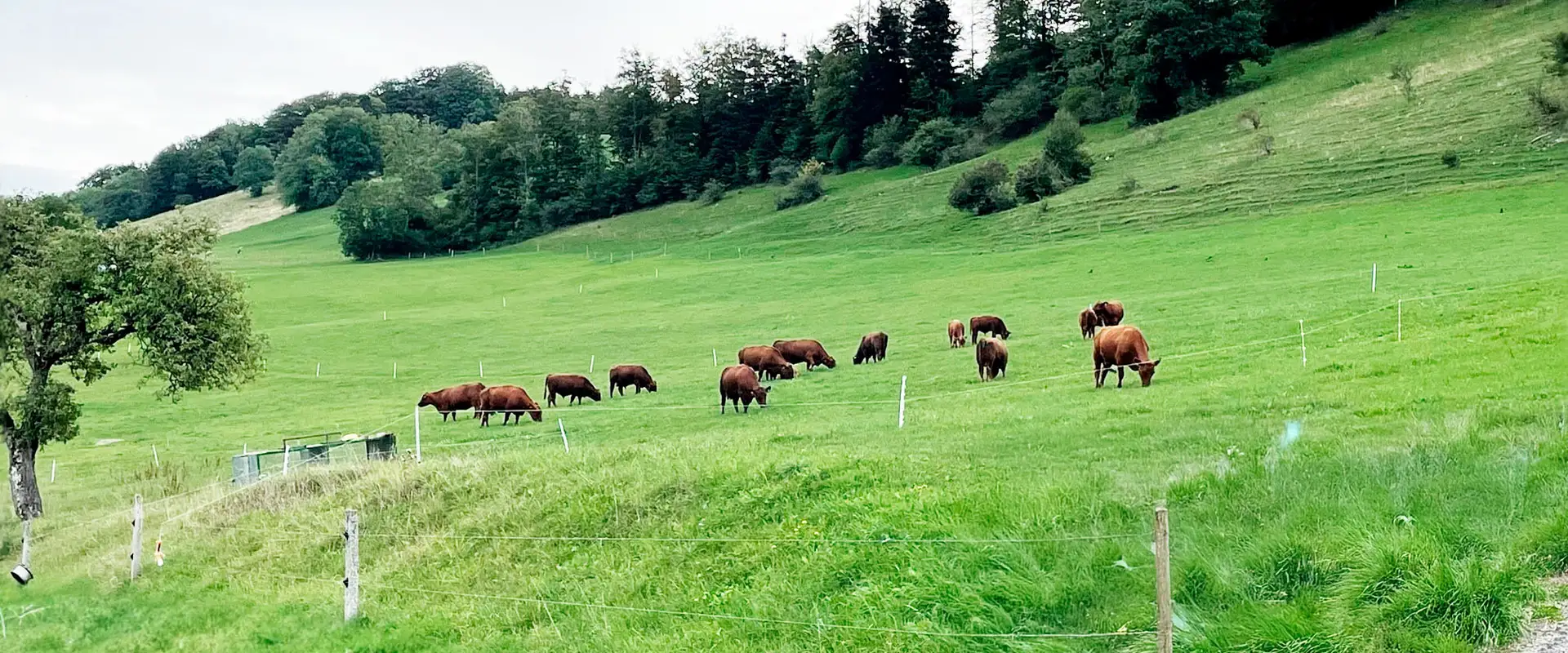
- Home
- Investors
- Annual report
- Sustainability
Sustainability
The Bell Food Group respects the needs of humans, animals and nature when developing its business processes. In doing so, it follows superordinate scientific and internationally accepted guidelines and views its entire value chain in terms of the Science Based Targets initiative (SBTi) in order to make a positive contribution to the achievement of the UNʼs sustainability goals.
New cattle slaughterhouse sets new standards
The new cattle slaughterhouse in Oensingen (CH) will bring important progress in the fields of animal welfare, hygiene, ergonomics, energy efficiency and productivity. The planning and design process places great emphasis on ensuring animal-friendly herding practices, lighting concepts, floor coverings and noise-avoidance measures. Commissioning will start in summer 2025.
Hilconaʼs sustainable facility development plan
The expansion is not only a game changer in terms of design and functionality, but also with regard to sustainability. The new building includes a new drainage concept with a sustainable wastewater treatment plant and state-of-theart photovoltaic systems. Solar power is also used by the building system for heat pumps and heat recovery systems that can either be used for heating or cooling, as required. All the roofs of the building are being greened. Commissioning is scheduled for the second half of 2025.
Expansion of solar energy
Seven new photovoltaic systems came online in 2024 at the locations of Bell International at Harkebrügge (DE), Edewecht (DE) and Niepołomice (PL), at Hubers/Sütag in Pfaffstätt (AT) and Ampfing (DE), at Hilcona in Schaan (FL) and at Hügli in Langenhaslach (DE).
Measures to improve energy efficiency and reduction of CO2
In the reporting year, the Bell Food Group once again developed tailored energy efficiency measures and CO2 reduction measures for its production facilities at various locations. These include the installation of energy-efficient production technologies such as ventilation and air-conditioning systems, water heating and LED lighting.
1 including temporary staff from third-party companies
The lengths of the bars are not shown to scale.